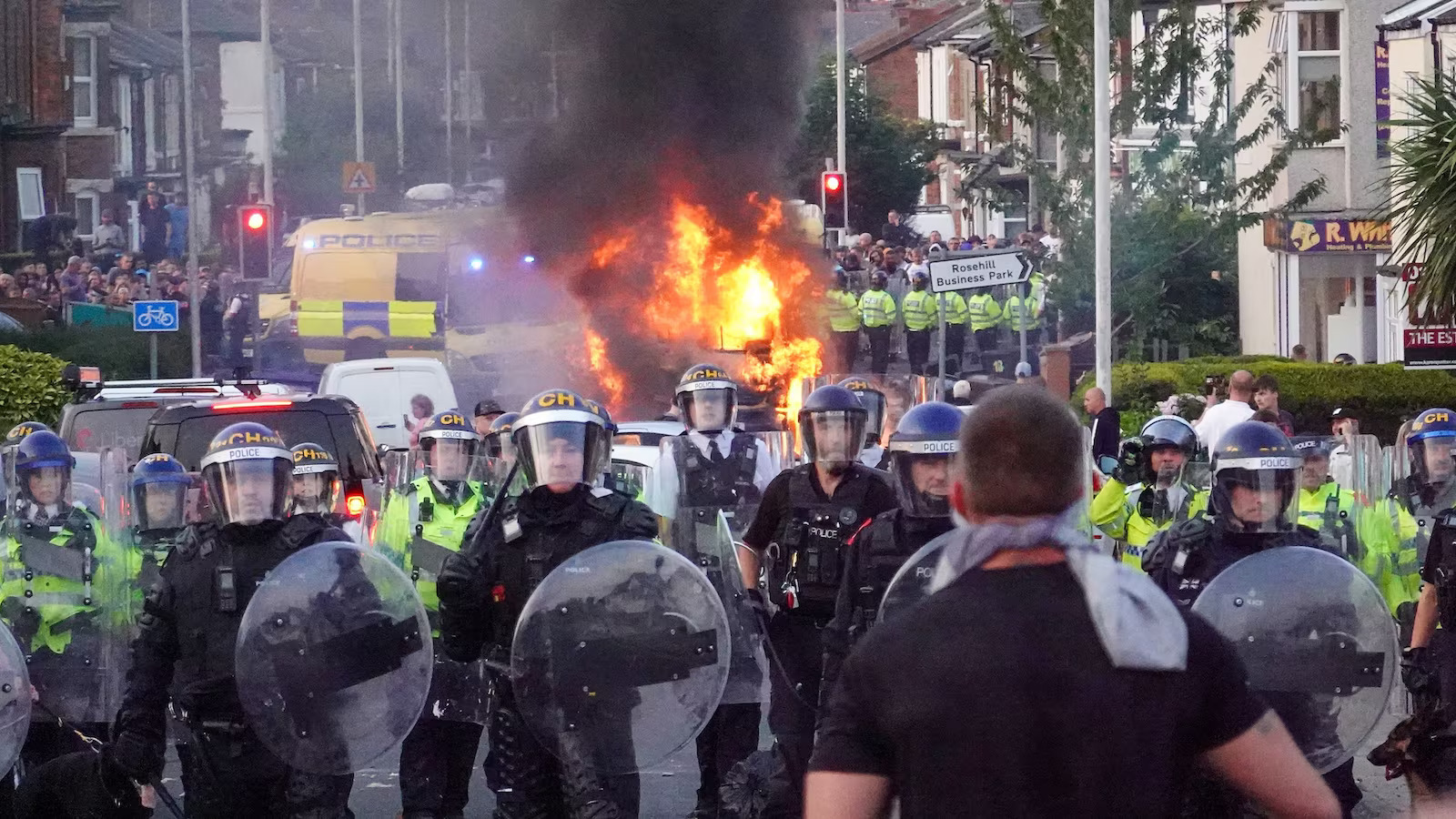In the aftermath of a stabbing attack in northwest England that killed three young girls and injured several other children, false information rapidly spread on social media, leading to violent protests. The name of a supposed suspect was circulated, which was later confirmed to be incorrect.
Misinformation fueled unrest, with protesters clashing with police outside a mosque, marking the start of several violent demonstrations across England. The real suspect, 17-year-old Axel Rudakubana, was identified as a U.K.-born individual of Rwandan descent, dispelling initial rumors that he was an asylum-seeker.
The spread of false information, particularly from sources such as Channel 3 Now, exacerbated the situation. This account, claiming to be a news channel but managed by people in Pakistan and the U.S., issued an apology for spreading the false name, Ali Al-Shakati.
By the time the apology was posted, the misinformation had already been widely disseminated. The propagation of this incorrect information on social media highlighted the role of both genuine misinformed individuals and those with malicious intent aiming to incite division and violence.

False Information After England Stabbing Attack Fuels Violent Protests and Misinformation
Efforts to control the spread of such misinformation have become increasingly important. Governments, including Britain’s, are grappling with the challenge of regulating toxic online content. U.K. Home Secretary Yvette Cooper emphasized the responsibility of social media companies in managing content on their platforms. Katwala noted that, unlike past efforts to curb misinformation, platforms like X (formerly Twitter) have seen a reduction in their anti-misinformation teams since Elon Musk’s acquisition.
Political figures weighed in on the issue, with British Prime Minister Keir Starmer stressing that inciting violence online is a criminal offense and calling on social media companies to take action. The delayed release of accurate information by the police, due to legal restrictions, allowed rumors to flourish.
Figures like Tommy Robinson and Nigel Farage exploited the situation to further their anti-immigrant and far-right narratives, even before the suspect’s name was publicly confirmed.
The situation underscored the dangers of spreading misinformation and using tragedy for political gain. Brendan Cox, whose wife Jo Cox was murdered by a far-right attacker, condemned Farage’s comments as dangerous and hateful. The events following the attack in Southport demonstrated the volatile consequences of false information and the critical need for accurate and timely communication from authorities.
